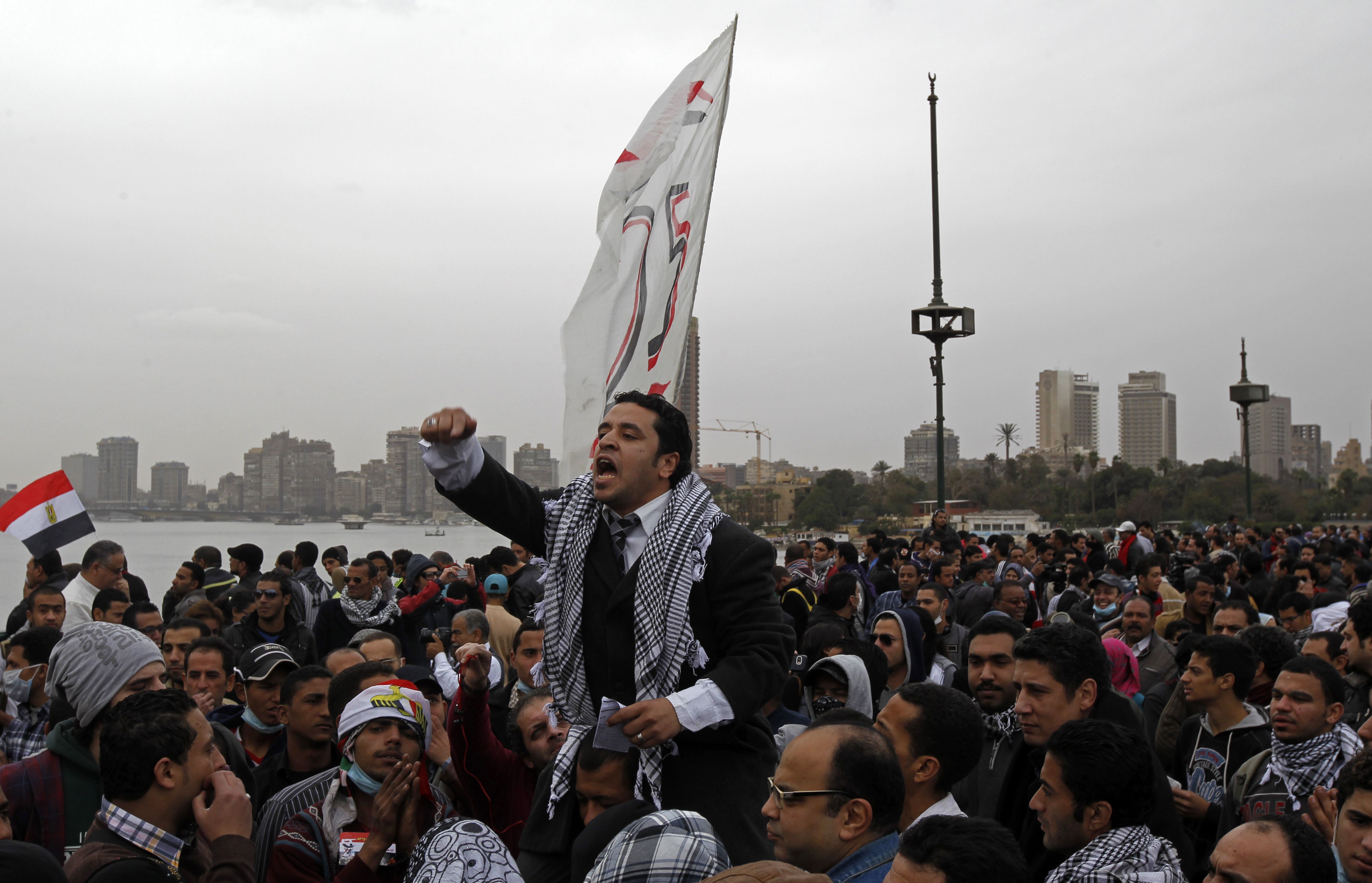
After masked men, in bright yellow security vests, ushered one of Bahrain’s most prominent human rights activists into custody over a tweet suggesting the prime minister bribes citizens for support, coinciding with protests against the use of toxic tear gas by security forces.
Nabeel Rajab, head of the Bahrain Centre for Human Rights, was sentenced to three months of prison last Monday by the Lower Criminal Court for defaming the people of Muharraq, who he suggested on Twitter support Bahraini Prime Minister, Sheikh Khalifa bin Salman in return for money.
His arrest was filmed by the masked members of the security officers, who arrested him and ushered him to a van, and similarly Rajab’s associates, who were with Rajab at the time.
Rajab has been arrested several times by authorities for challenging the ruling members of the Sheikdom for their continued brutal crackdown on ongoing protests, and their refusal to allow true reform to blossom in the small Gulf country.
Prominent Bahraini activist, Said Youssef Almuhafda, who actively participates in Bahrain’s protests, said he believes that while Rajab’s trial was fair, it was “politicized.” According to Almuhafda, people who are charged with slander are fined.
“Nabeel is the only person sentenced to prison over it,” said Almuhafda.
Almuhafda said Rajab was not the only activist targeted for Facebook or Twitter posts. He said two other activists were similarly arrested and taken to the Criminal Investigations building in Bahrain, where they were “indirectly given threats,” then released.
Almuhafda was injured in a protest last month when police fired sound grenades from close range at him and prominent human rights activist Zainab El Khawaja. Almuhafda said that he and El Khawaja were not protesting when police attacked them. He said they were at the protest as human rights observers and they were cornered by police 15 minutes after the protest ended.
Almuhafda filed a complaint against the Bahraini riot police and urged other Bahraini activists to do the same. He told us that while many similar complaints had been made, nothing has ever happened.
We asked Almuhafda yesterday, if his complaint had been taken seriously, “they called me and asked me to give a statement again, but he (the suspect) has not been held accountable yet.”
Following the uprisings in Egypt and Tunisia in 2011, Bahrainis took to the streets on 14 February demanding similar reforms. The Sunni King Hamad bin Isa bin Salman Al Khalifa is said to have created political reforms in the country since he ruled the kingdom in 1999.
However, the Shia community of Bahrain, which is estimated to be around 70 percent of the population, faces increased disenfranchisement by its Sunni minority.
According to the Bahrain Independent Commission of Inquiry (BICI) report issued in November 2011, 46 people died in the uprising with more than 550 documented allegations of torture including beating, hanging and electrocution.
Many human rights organisations have called on the Bahraini government to halt its crackdown on peaceful protestors and to release prisoners of conscience, including Amnesty International and Human Rights Watch. Philip Luther, Amnesty International’s Middle East and North Africa Programme Director described the human rights situation in Bahrain as a “human rights crisis.”


